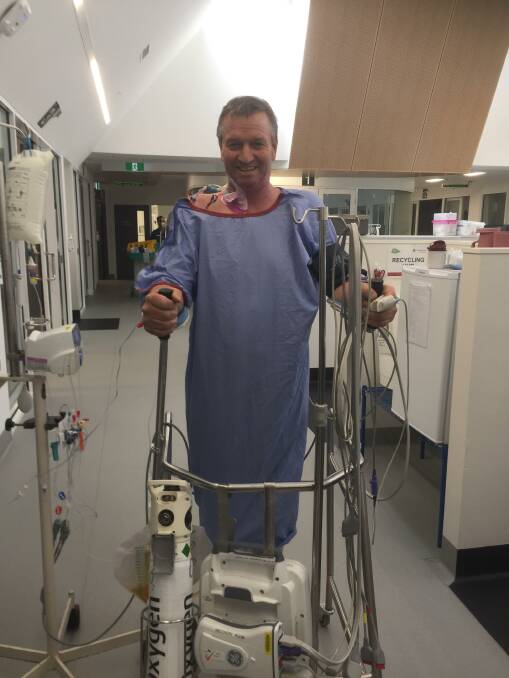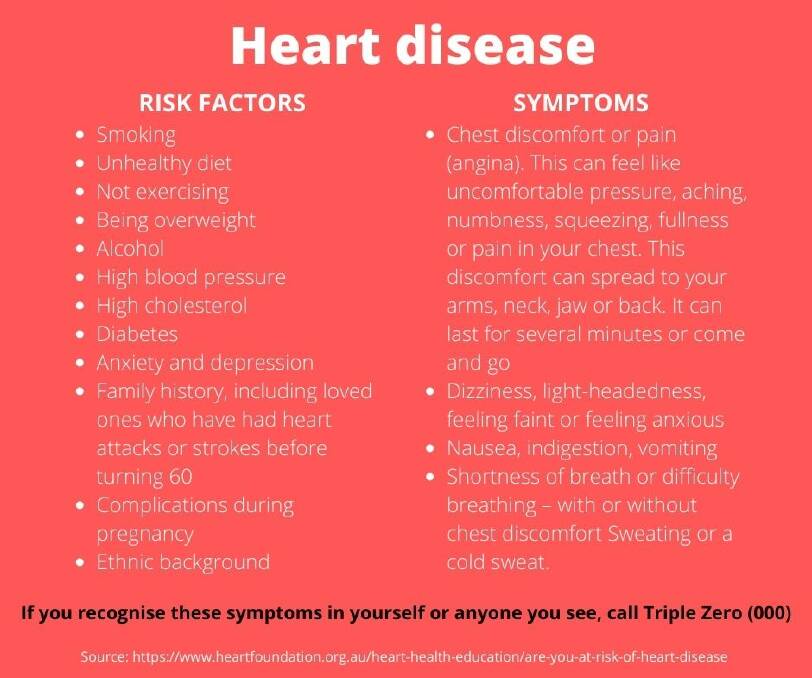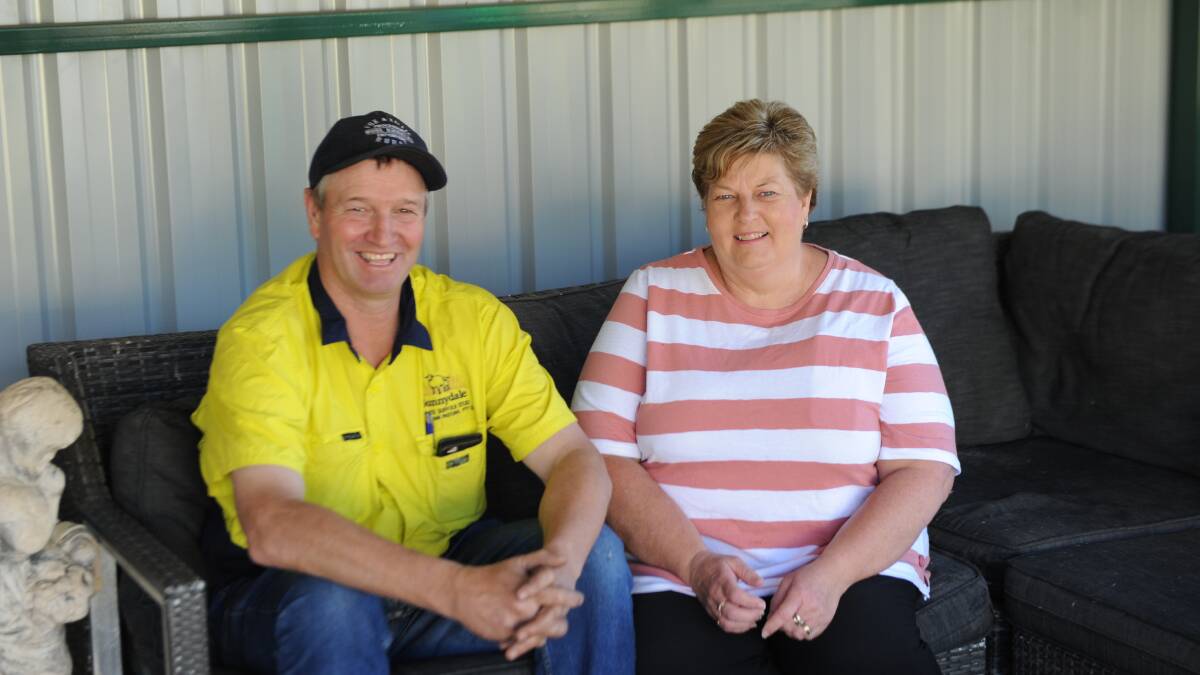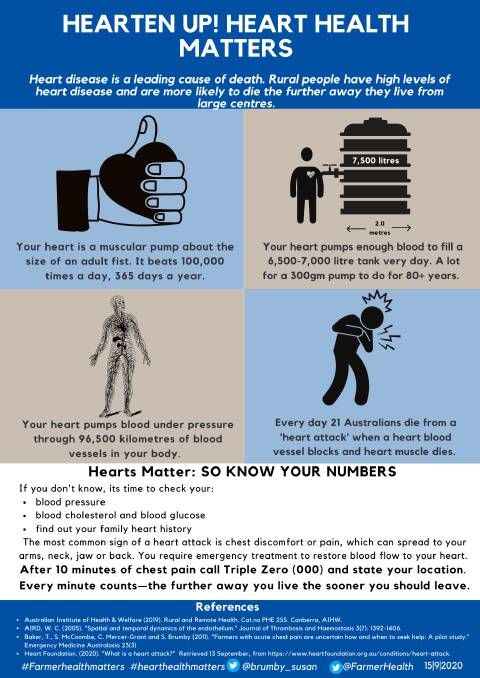
2020 had been a rollercoaster of a year for Andrew Weidemann even before he had a heart episode.
Subscribe now for unlimited access.
or signup to continue reading
In March, his mother Gwenda died, and COVID-19 restrictions forced some of his family to livestream the funeral.
In June, Grain Producers Australia, which he chairs, launched a new training program to ensure farmers had year-round access to qualified workers.
In that same month he earned a Queen's Birthday Order of Australia for services to primary industry.
Then in August, while he was shearing rams, it happened.

"I was feeling a bit reflux-ey (sic) and off-colour, but I kept shearing until morning tea," he said.
"My sister-in-law Andrea asked if I'd checked my blood pressure, which I hadn't, so we got one of the portable machines out and I was 155 over 90. I've never had high blood pressure in my life, so it was a bit strange but I put it down to exerting myself while shearing.
"I went back down to the shed and I still wasn't feeling 100 per cent, so my son finished the six or ten sheep we had left and I went home. (His wife) Julie bundled me up and took me to Horsham to get it checked."
The 55-year-old says he owes his life to his wife.
READ MORE:
"If she hadn't done that I would have just sat on the couch," he said. "By the time I got to Horsham I actually felt fine, so they put me on the ECG machine and there were no issues, but when they took a blood sample they found I'd had a heart episode and they needed to send me to Ballarat."
More blood tests in Ballarat were abnormal, and confirmed he had suffered a cardiac episode consistent with Coronary Artery Disease.
A subsequent Angiogram showed narrowing in the main coronary artery, a blood vessel which supplies the heart muscle. With Mr Weidemann heavily medicated at this point, his wife and brother Rodney consented on his behalf to be transferred to a Geelong hospital for bypass surgery.
"It was a week to the day after I was shearing that I had the operation," he said. "I've been in rehab and recovery since them."
As he had to in Ballarat, Mr Weidemann needed to isolate and undertake a COVID-19 test before the procedure, meaning he could not have visitors. This he said was the hardest part of the process
"Isolation's a room with no one in it, and the doctors come out with masks and gowns and test you," he said.
"I was on my own, and it was hard emotionally on the family here as well as me. My sons Matthew and Jordan came and finished off a pergola I had started building, and they were around Julie which was good, but it was a very tough time.
"Being in St John of God was great because there are a lot of Wimmera people who are down there working as nurses. They pulled the tubes out the day after the operation, and I came out of ICU after two days. The doctors said because I'm fit I'll get over this quickly."
Mr Weidemann said his recovery was ongoing but had been smooth because of his fitness, but it also highlighted how no one was safe from heart episodes.

"I'm only three or four kilos off my footy playing weight, and that was why it was a big shock: Everyone said 'Wow, Weede's crook?'," he said.
"I run 150 metres to catch white suffolk stud lambs when they're born, I played footy last year, and I had no issues leading up to this.
"I'm the typical person who goes out running one morning and doesn't come home. It's essentially in my genetics: My family doesn't have a history of heart issues, but my two grandfathers and my Dad died of strokes.
"If this hadn't been picked up, I would have been another Dean Jones. This could have been an underlying problem for ten years without me picking it up."

Professor Sue Brumby, director of the Hamilton-based National Centre for Farmer Health, said she had received anecdotal reports of fewer people reporting to hospital, or waiting longer to go to hospital, since the onset of the COVID-19 pandemic.
"People do have to go to regional centres, which could explain why (farmers) don't go to hospital as much. That and them not wanting to be a burden," she said.
Professor Brumby said heart problems were one of the major causes of ill health and death in rural Australia.
"We do health and lifestyle assessments often at the Wimmera Machinery Field Days where we have farmers come in and have their blood pressure, blood glucose, psychosocial stress, cholesterol and waist measured," she said.
"They can take a report back to their GP to have a discussion.
"Another thing we are very big on is explaining to farmers that if they get symptoms that last for more than 10 minutes, they need to get help right away.
"Research we did around nine years ago showed that when farmers had chest pain or symptoms of a heart attack, they waited longer to get help the further away they lived from a health service.
"That is exactly the opposite of what you want them to do.
"We also discovered that when farmers did get help, they went general practice, when the best place to go is to an emergency department, so that's the other aspect to think about, calling triple zero."
Mr Weidemann said his experience had led to greater awareness of heart health in the Rupanyup community, and in his nationwide circle of friends.
"I've had three mates that have told me they have been to the doctor since my episode and one of them in New South Wales ended up with an angina test," he said.
"I think nearly every call I have I ask people if they are getting checked. It's not bulletproof, but it does give you some indication of where you might be at with your health.
"I've spoken to my brother about getting checked and he's been booked in, so he's on the front foot. Out of all of this, if we can save one person, that would be fantastic."
If you are seeing this message you are a loyal digital subscriber to the Wimmera Mail-Times, as we made this story available only to subscribers. Thank you very much for your support and allowing us to continue telling the Wimmera's story. We appreciate your support of local journalism.


